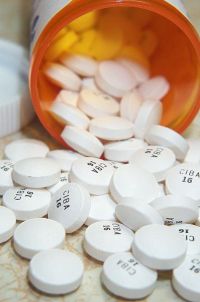Ritalin boosts learning by increasing brain plasticity
 |
In animal research, the scientists showed for the first time that Ritalin boosts both of these cognitive abilities by increasing the activity of the neurotransmitter dopamine deep inside the brain. Neurotransmitters are the chemical messengers neurons use to communicate with each other. They release the molecule, which then docks onto receptors of other neurons. The research demonstrated that one type of dopamine receptor aids the ability to focus, and another type improves the learning itself.
The scientists also established that Ritalin produces these effects by enhancing brain plasticity - strengthening communication between neurons where they meet at the synapse. Research in this field has accelerated as scientists have recognized that our brains can continue to form new connections - remain plastic - throughout life...
Bonci and his colleagues showed that Ritalin's therapeutic action takes place in a brain region called the amygdala, an almond-shaped cluster of neurons known to be critical for learning and emotional memory.
"We found that a dopamine receptor, known as the D2 receptor, controls the ability to stay focused on a task - the well-known benefit of Ritalin," said Patricia Janak, PhD, co-senior author on the paper. "But we also discovered that another dopamine receptor, D1, underlies learning efficiency."...
The research assessed the ability of rats to learn that they could get a sugar water reward when they received a signal - a flash of light and a sound. The scientists compared the behavior of animals receiving Ritalin with those that did not receive it, and found those receiving Ritalin learned much better.
However, they also found that if they blocked the dopamine D1 receptors with drugs, Ritalin was unable to enhance learning. And if they blocked D2 receptors, Ritalin failed to improve focus. The experiments established the distinct role of each of the dopamine receptors in enabling Ritalin to enhance cognitive performance.
|

Recently @ DoseNation
|
|






















From personal (and reckless) experience, our brains seem wired to only consolidate one days worth of memories per day. Stay up for four days expecting four days worth of memories? Too bad, you get a grand total of one. My of my, where does the time fly?
The comments posted here do not reflect the views of the owners of this site.